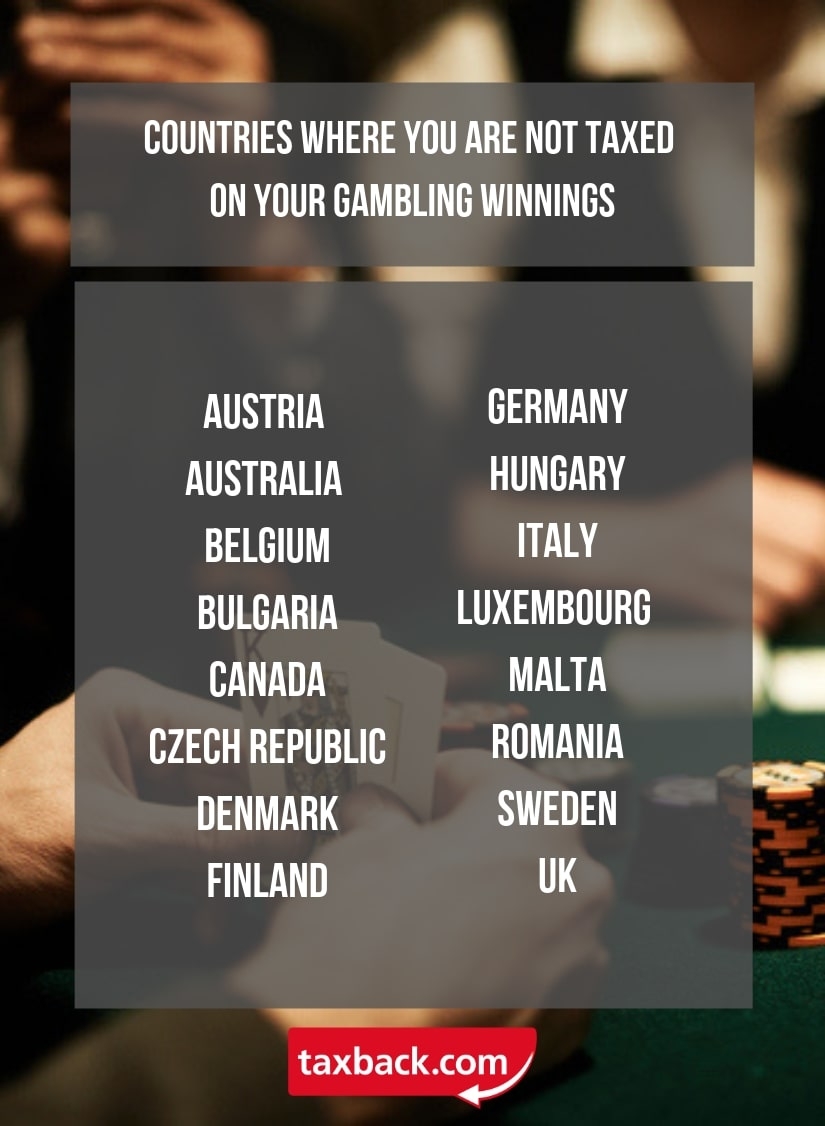Is Gambling Tax Free in Denmark? Know the Rules
Gambling is not tax-free in Denmark. Winnings from gambling are subject to taxation under specific conditions. Denmark regulates gambling

Gambling is not tax-free in Denmark. Winnings from gambling are subject to taxation under specific conditions.
Denmark regulates gambling through its Danish Gambling Act. The law ensures fair play and prevents gambling addiction. Taxes on gambling vary based on the type of game and the amount won. Winnings from licensed online casinos, lotteries, and betting shops are often taxed.
Players must report significant winnings to the Danish Tax Agency. The tax rate can differ, making it essential for gamblers to understand their obligations. This regulation helps maintain a balanced gambling environment. Danish authorities strictly enforce these rules to ensure compliance. Knowing the tax implications can help gamblers make informed decisions. It also contributes to the country’s revenue.
Gambling Laws In Denmark
Understanding the gambling laws in Denmark is essential for both residents and visitors. Denmark has a well-regulated gambling industry that ensures fair play and transparency. Let’s dive into the historical background and current regulations of gambling in Denmark.
Historical Perspective
Gambling in Denmark has a rich history. It dates back to the early 20th century. The first legal gambling activities started in the 1940s. These activities were mainly lotteries and betting on horse racing.
In 1948, the Danish Gambling Authority (DGA) was established. The DGA regulates and oversees all gambling activities. The goal was to ensure fair play and protect players.
Lotteries were the most popular form of gambling. They were run by the state. Private companies were not allowed to operate gambling activities. This changed in the 1990s with the rise of online gambling.
Current Regulations
Today, Denmark has a modern and comprehensive gambling framework. The Danish Gambling Act of 2012 is the main legislation. This act opened the market to private operators.
The Danish Gambling Authority (DGA) continues to oversee all gambling activities. They issue licenses to both online and offline operators. All operators must follow strict guidelines to ensure fair play.
Below is a table summarizing the key points of the current gambling regulations in Denmark:
| Aspect | Details |
|---|---|
| Regulating Body | Danish Gambling Authority (DGA) |
| Main Legislation | Danish Gambling Act of 2012 |
| Licenses | Required for all operators |
| Taxation | Varies by gambling type |
Online gambling has specific regulations. Operators must have a Danish license. They must also use a .dk domain. These rules ensure that Danish players are protected.
The DGA also focuses on responsible gambling. Operators must provide tools for self-exclusion. They must also offer resources for problem gamblers. This ensures a safe gambling environment for everyone.
Understanding these laws can help you enjoy gambling safely in Denmark. Always check if the operator is licensed by the DGA.
Taxation Policies On Winnings
Understanding the taxation policies on gambling winnings in Denmark is crucial. These policies impact both residents and visitors alike. In this section, we’ll cover the general tax rules and special cases related to gambling winnings.
General Tax Rules
In Denmark, most gambling winnings are tax-free. This includes lotteries, casinos, and online gambling platforms. Players do not have to declare these winnings on their tax returns.
However, professional gamblers are an exception. They must declare their earnings as taxable income. Professional status is determined based on regularity and intent to earn a living from gambling.
Special Cases
There are special cases where winnings may be taxable. For example, if you win money from foreign gambling sites. These winnings must be reported and may be subject to Danish tax laws.
Another special case involves gambling syndicates. Members of syndicates must report their share of the winnings. This ensures transparency and proper taxation.
Differences Between Online And Offline Gambling
Gambling in Denmark comes in two main forms: online and offline. Both have unique features and regulations. Understanding these differences can help gamblers make informed decisions.
Online Platforms
Online gambling platforms offer convenience and accessibility. Players can gamble from home. This eliminates the need for travel. Online platforms often provide a wider variety of games. These include slots, poker, and sports betting.
The Danish Gambling Authority regulates online gambling. This ensures fair play and protection for players. Winnings from licensed online platforms are generally tax-free. This is a major advantage for many players.
Online platforms also offer bonuses and promotions. These can include welcome bonuses, free spins, and cashback offers. Players find these incentives attractive. They enhance the overall gambling experience.
Physical Casinos
Physical casinos provide a different experience. They offer a social atmosphere. Players can interact with others face-to-face. This can make the experience more enjoyable for some.
Denmark has several physical casinos. These are located in major cities like Copenhagen and Aarhus. These casinos offer traditional table games like blackjack, roulette, and poker. They also have slot machines and other electronic games.
Winnings from physical casinos are subject to taxes. This is an important consideration for gamblers. The tax rate can vary. It depends on the amount won and other factors.
Physical casinos also have operating hours. This can limit when players can gamble. In contrast, online platforms are available 24/7. This provides more flexibility for players.
| Feature | Online Platforms | Physical Casinos |
|---|---|---|
| Accessibility | Available 24/7 | Limited by operating hours |
| Social Interaction | Limited | High |
| Game Variety | Wide | Varied but limited |
| Bonuses | Frequent | Rare |
| Tax on Winnings | Generally tax-free | Subject to tax |
Impact On Players
Understanding whether gambling is tax-free in Denmark is crucial for players. It affects their finances and legal standing. This section will explore the impact on players.
Financial Implications
Gambling winnings in Denmark are generally tax-free. This means players keep all their winnings. It provides financial relief and greater enjoyment.
However, there are exceptions. Professional gamblers may need to pay taxes. The Danish Tax Agency determines professional status. Players should check their status to avoid surprises.
Here is a quick overview:
| Type of Gambler | Tax Status |
|---|---|
| Casual Player | Tax-Free |
| Professional Gambler | Taxable |
Legal Considerations
Danish gambling laws are strict but fair. Players must gamble on licensed platforms. Unlicensed gambling can lead to penalties.
All licensed platforms report player winnings. This ensures transparency and legality. Players should always check platform licenses before playing.
Key legal points to remember:
- Gamble only on licensed sites.
- Report winnings if required by law.
- Check professional status with the Danish Tax Agency.
Adhering to these rules helps avoid legal issues. It ensures a safe and enjoyable gambling experience in Denmark.
Comparative Analysis With Other Countries
Comparing gambling taxes in Denmark with other countries can help understand its position globally. This analysis highlights differences and similarities in taxation rules.
European Union Standards
The European Union has diverse gambling tax regulations. Each country can set its own rules, leading to varied tax rates.
In Denmark, most gambling winnings are tax-free. This includes lotteries, online casinos, and sports betting. But, professional gamblers must pay taxes.
Other EU countries have different rules. For example:
- Germany: Winnings from online casinos are taxed.
- France: Lottery winnings are tax-free, but other gambling is taxed.
- Spain: All gambling winnings are taxed.
The differences show the variety in gambling tax laws within the EU.
Global Practices
Globally, gambling tax regulations also vary. Some countries have strict tax rules, while others are lenient.
Here is a comparison with selected countries:
| Country | Gambling Tax Rules |
|---|---|
| United States | All gambling winnings are taxed. |
| Australia | Most winnings are tax-free. |
| United Kingdom | All gambling winnings are tax-free. |
These examples show the global diversity in gambling tax laws. Denmark’s tax-free policy for most winnings is unique.

Frequently Asked Questions
Is Gambling Tax-free In Denmark?
Yes, gambling winnings are generally tax-free for players in Denmark.
Do Danish Gamblers Pay Taxes On Winnings?
No, Danish gamblers do not pay taxes on their gambling winnings.
Are Casino Winnings Taxed In Denmark?
No, casino winnings are not taxed for individual players in Denmark.
How Are Gambling Taxes Handled In Denmark?
Gambling operators pay taxes, but players’ winnings remain untaxed.
Conclusion
Understanding gambling taxes in Denmark can save you time and money. Danish residents enjoy tax-free winnings from licensed operators. Always check the latest regulations to stay compliant. This ensures a hassle-free gaming experience. Explore more about Danish gambling laws to make informed decisions.
Happy gambling!















